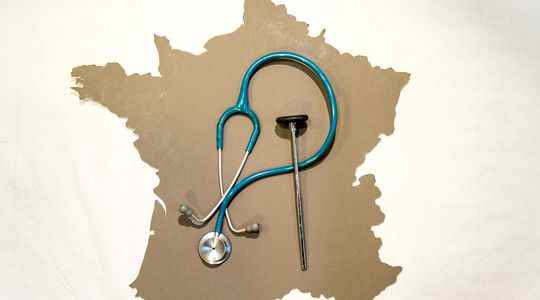YES / “Incentive policies have proven their ineffectiveness”
By Sebastien Jumel
The question of medical deserts has been raised in France for thirty years. From now on, 6 million French people no longer have a referring doctor. Wherever medical deserts prosper, renunciations of care are observed.
Incentive policies having proved their ineffectiveness, a question arises: can we be content to wait for the effects of the end of the numerus clausus? The answer is no, except to consider that our fellow citizens who do not have a doctor will still have to do without it for ten years. No, because the decline in the supply of liberal care is combined with the effects of the hospital crisis. No, because the aging of the population leads to more health needs. No, finally, because there is no indication that more trained doctors will settle in areas that lack them.
From then on, common sense and a dose of political courage in the face of certain corporatisms led to the implementation of a policy relating to the sanitary planning of the territory. This is the subject of my Bill for “Health accessible to all and against medical desertification”, debated in the hemicycle last December. This text puts forward a series of measures making it possible to install doctors where the needs are and to strengthen the role of local hospitals; to territorialize the reception capacities of medical training according to needs; to make the public service commitment contract compulsory for a minimum of two years; to establish the selective agreement to encourage the installation in areas in medical loss…
This proposal received support from all benches, except that of the Walkers. During his first five-year term, Emmanuel Macron remained deaf. He must now listen to those who, like me, have shown that we will not settle territorial fractures by remaining with our eyes fixed on the horizon of the end of the numerus clausus. Or he will go to the reef.
Sébastien Jumel is deputy (NUPES/Communist Party) of Seine-Maritime
NO / “The solution will not come from coercion, but from the collaboration of actors in the field”
By dr. Elise Fraih
Today, 87% of French territory is considered under-endowed (96% in Ile-de-France). The problem of access to care is not that of distribution, but of medical demography. We are 90,000 general practitioners in France. It would take twice that. This deficit is the consequence of several decades without investment in higher education and training. It is an arithmetic problem which will not be solved by stripping territories to dress others. Especially since general practitioners are already those who are distributed in the most homogeneous way on the territory.
The challenge is therefore to promote the installation of young general practitioners. This requires the discovery of various territories, during the studies, but also by a better promotion of the aids to the installation. Far from only wishing for financial aid, young doctors above all expect personalized support in order to prepare for a lasting installation. ReAGJIR therefore calls on all university, territorial and institutional actors to work together to support each student through the establishment of departmental support desks for settling in. They would make it possible to connect the territories and the student doctors, replacements and installed, would facilitate the procedures, would link the offer and the needs and would thus remove major obstacles to the installation: complexity and isolation. Some departments have already started to imagine devices of this type, it must become widespread.
Finally, a doctor does not act alone for the health of patients. Working together with other healthcare professionals will both improve the quality of care and free up medical time. The solutions are never simplistic, nor imposed vertically. They are built together, in harmony with the players in the field, for and with our patients.
Elise Fraih is a general practitioner and president of ReAGJIR, the inter-union Autonomous Regrouping of Young Installed and Replacement General Practitioners
